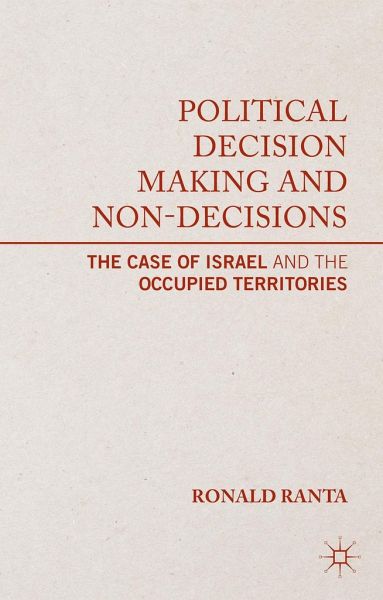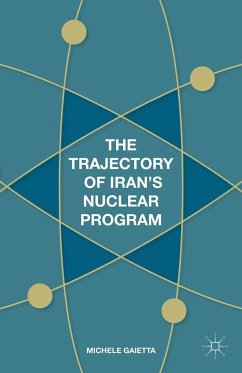
Political Decision Making and Non-Decisions
The Case of Israel and the Occupied Territories

PAYBACK Punkte
19 °P sammeln!
This book examines Israel's relationship and political decision-making process towards the Occupied Territories from the aftermath of the Six Day War to the Labour Party's electoral defeat in 1977.The period represents the first decade of Israel's occupation of the Occupied Territories and the last decade in which the Labour Party was Israel's most dominant political force.Arguing that the successive Israeli governments headed by the Labour Party lacked a strategic policy towards the Occupied Territories to address the country's objectives and needs, this book demonstrates the detrimental effe...
This book examines Israel's relationship and political decision-making process towards the Occupied Territories from the aftermath of the Six Day War to the Labour Party's electoral defeat in 1977.
The period represents the first decade of Israel's occupation of the Occupied Territories and the last decade in which the Labour Party was Israel's most dominant political force.
Arguing that the successive Israeli governments headed by the Labour Party lacked a strategic policy towards the Occupied Territories to address the country's objectives and needs, this book demonstrates the detrimental effect this had on Israel, on the Middle East in general, and on the Palestinian people in particular.
In addressing key aspects of decision making pathologies, this book raises issues which remain important features of Israeli politics today and an analysis relevant for political decision making worldwide.
The period represents the first decade of Israel's occupation of the Occupied Territories and the last decade in which the Labour Party was Israel's most dominant political force.
Arguing that the successive Israeli governments headed by the Labour Party lacked a strategic policy towards the Occupied Territories to address the country's objectives and needs, this book demonstrates the detrimental effect this had on Israel, on the Middle East in general, and on the Palestinian people in particular.
In addressing key aspects of decision making pathologies, this book raises issues which remain important features of Israeli politics today and an analysis relevant for political decision making worldwide.














